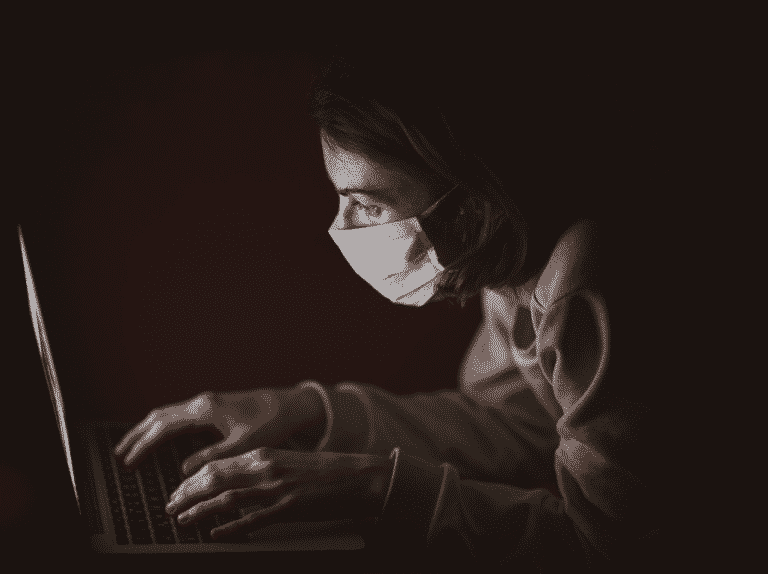Feeling stressed, anxious, sad or depressed? Who isn’t!? It’s Pandemic PTSD
No one was excused from Pandemic PTSD. I’m not kidding. Whether you got sick, a loved one got sick (or passed away), or faced the disruptions of everything, there’s a lot we need to heal from. It’s bad enough to be ill or see someone you care about ill, but we saw much more than that. 93,000 drug overdoses, 1.3 million suicides, job loss, financial instability, loss of community, and connection. It’s been a disaster for all.
Many people (myself included) found themselves dealing with situational depression or ongoing anxiety around the pandemic. I believe this is Pandemic PTSD. Between the loss of life, work, community, and activities there was a lot to be depressed about. And yet, suddenly it seems like the world has opened up and we’re all supposed to jump up and down and get back to our pre-pandemic life with enthusiasm and gratitude. But, that simply isn’t possible for all of us. For some, the work won’t return or the business has been lost. For others, the relative who died of Covid isn’t coming back. You get the idea. The pandemic may be ending for us but the feelings remain.
How do we carry on with pandemic PTSD?
Life must go on. It’s our job to keep going and figure out how to take care of ourselves as circumstances change yet again. I often talk about having to learn to pivot in recovery, and this. is why. Things are ALWAYS changing. The more we get used to that and wear our lives like a loose-fitting garment, the better off we’ll be. So, here are some tips to ease the depression and feel better soon.
How can you ease your Pandemic PTSD
Use positive psychology
Positive psychology is the study of the “good life,” or other positive aspects of the human experience that make life worth living. Eliminating bad thoughts and replacing them with good ones is life-changing once you start practicing. I’m the first to admit that some days I wake up and can’t tell if I’m homicidal or suicidal for a minutes. I’m kind of kidding. These days, it’s imperative to tap into positivity; however, works best for you. I immediately tune into a Zoom 12-step meeting, listen to affirmations, write a gratitude list, list the things I’m looking forward to, or find other positive ways to start the day. If you replace the bad thoughts with good ones, it will help your brain reset for the day. I use Youtube videos for morning affirmations. Even ten minutes makes a difference in battling the depression.
Find your glimmers instead of your triggers
Glimmers are the opposite of triggers. If you love puppies, find some puppies to play with for a couple of hours. There are animal therapy programs, as well as shelters that may need help. In Socal, we have something called the Gentle Barn. At the Gentle Barn, they have rescue animals of all kinds you can visit. Love movies? I do. I’ve been watching some of my old favorites (like any Eddie Murphy comedy out of the 80s). Pop up some corn and start laughing, or crying, whatever your pleasure. I’ve been driving to the beach every day to see the dolphins play in the surf. It’s a very soothing and quiet time alone. Like food? This is the time for comfort food, so whether you like to cook, order or explore, look into food.
Nurture your soul, spiritual life
This looks different for everyone. Attending more 12-step meetings and making a more significant effort to meditate help. I’m also using the Calm app for quick meditations, hiking hills, and walking where there’s water. I’m also making strides in my personal life, which is uncomfortable, but for me also feels spiritual. In the most unexpected ways, I’ve found a new voice for myself in the pandemic. Can you speak your mind? I’ve had to speak up a few times, which usually makes me uncomfortable. In being forced to this, however, so I found confidence and faced some fears. Like most of my fears, they are never as bad as I thought.
Talk to someone every day
If it needs to be a professional, do that. If that’s not your style, talk to a friend or family member you trust. Don’t have any? Call a helpline and ask for therapies like EMDR therapy, find a support group, join a Facebook group and share. There is power in sharing your feelings. It can take away their power. It can help you find comfort in other people in a way you never expected. The essential thing is that you find someone safe and like-minded. Someone who won’t judge or shame you and has been through what you’re going through and can provide helpful, useful support. Check out the depression resources
Exercise to cope
Endorphins will make you feel better. It is a fact. Being outside will make you feel better. Get out there and start by taking a brisk walk – to music if that helps. Move to hiking, even around a neighborhood is good. Want more, explore running with Leslie Gold, a marathon coach who trains people in sober livings. Have dogs? They’ll love you even more for a good walk! Want yoga? There are more classes then you’ll know what to do with on youtube. Anything you can think to do that can be done from home, there is now video and live online classes to enjoy.
Find a hobby to get enthusiastic about something
Seriously. I’m improving my Buddhist practice, cooking new things, and reading more. Whatever it is that makes you happy, find a way to bring that into your daily life. It really matters that there is something to look forward to every day.
More Articles To Read
Growing Up In Recovery After You Get Sober





















